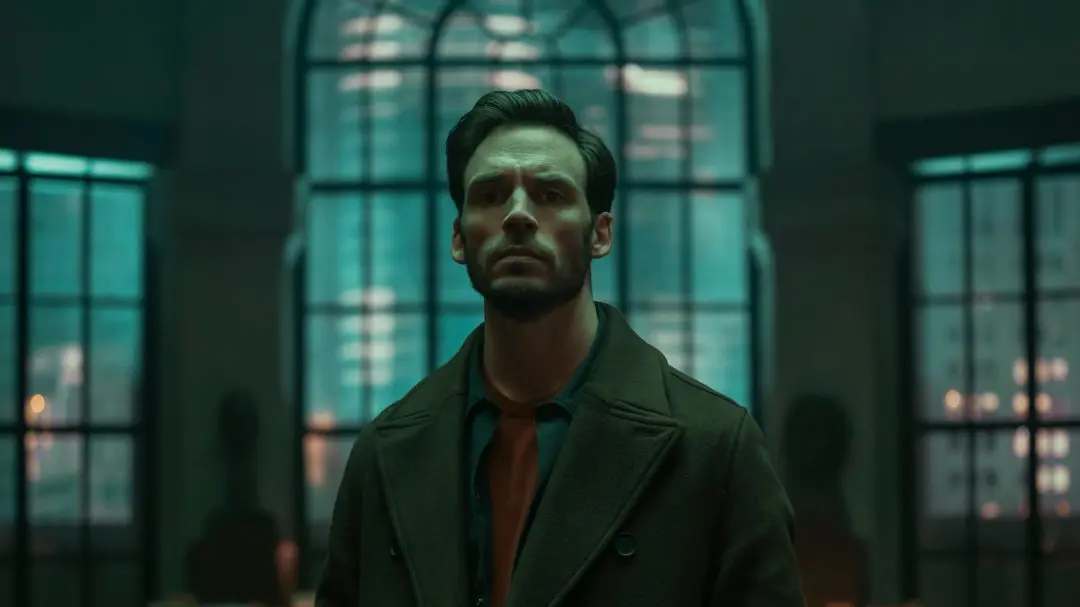What really happened to Dr. Lazarus — the twist that stunned viewers
-

Harlan Coben has delivered his fair share of “wait, what just happened?” endings, but nothing quite like Lazarus. The six-part Prime Video thriller, co-created with Danny Brocklehurst, takes the author’s trademark domestic mysteries and filters them through a haunting, supernatural lens.
Starring Sam Claflin as Joel “Laz” Lazarus and Bill Nighy as Dr. Jonathan Lazarus, the series follows a father-son duo bound by secrets, guilt, and a family curse that refuses to die. When Dr. Lazarus is found dead in his office, an apparent suicide, his son begins a relentless search for the truth, uncovering lies that stretch back decades.
Coben has called Lazarus “a story about the ghosts we inherit — both literal and emotional.” And by the time the credits roll, it’s clear that statement isn’t metaphorical. The series ends with one of the author’s most devastating and morally complex twists, one that left even die-hard Coben fans stunned.
“It’s not over”: Unraveling the mystery of Dr. Lazarus’ final moments
From the opening scene, Lazarus is steeped in unease. Dr. Jonathan Lazarus’s death appears straightforward, a respected psychiatrist takes his own life, leaving behind only a cryptic sketch of a dolmen and the message “It’s not over.” But as Laz (Claflin) digs deeper, that note begins to feel less like a suicide letter and more like a warning.
What follows is part ghost story, part psychological descent. Laz starts seeing dead patients from his father’s clinic, or thinks he does. In an interview with TV Insider, showrunner Danny Brocklehurst explained:
“I wanted viewers to constantly question what’s real and what’s grief-induced. Is Laz being haunted by his father’s spirit, or by the truth he doesn’t want to face?”
In the season’s final hour, Laz uncovers a hidden recording of his father’s last therapy session, and it changes everything. Detective Alison Brown (Kate Ashfield), who’s been leading the investigation into Jonathan’s death, is heard confronting him about a series of unsolved murders tied to his practice. On the tape, Dr. Lazarus confesses in a chilling calm.
“I helped them let go,” he says, justifying his crimes as acts of mercy toward patients he deemed beyond saving.
The revelation flips the entire show on its head: the man everyone mourned was no victim, but a serial killer hiding in plain sight. Brown, who’d been covering up his crimes for years, finally breaks.
“You’ll fix this,” she tells him on the recording, handing him a gun. Moments later, a single shot rings out. Jonathan’s death, we learn, wasn’t an act of despair, it was the final move in a long and bloody game. As Brocklehurst explained:
“The show’s title, Lazarus, was never just about resurrection — it’s about how evil keeps coming back, generation after generation.”
Recap of Lazarus Season 1
Across six episodes, Lazarus balances emotional depth with the slow-burn tension of a detective story. Laz returns to his seaside hometown after his father’s death, hoping to reconnect with his estranged mother Sylvia and teenage son Aidan (Curtis Tennant).
But instead of healing old wounds, he reopens them, especially those tied to his twin sister Sutton’s long-ago murder. Midway through the season, Laz learns the truth: Sutton was killed by Sam Olsen (Edward Hogg), a disturbed childhood friend who’d been obsessed with her since adolescence.
Sam’s death in Episode 4 seems to bring closure, but the show is only getting started. Detective Brown’s story runs parallel, revealing her complicated relationship with Jonathan Lazarus. Once a young officer looking to make her name, she became his enabler, suppressing evidence to protect him.
“Alison’s guilt is the moral spine of the show. She represents how good intentions can curdle into something monstrous,” Coben told TV Insider.
By Episode 6, Brown’s carefully built facade shatters. After confronting Laz with the truth, she flees into the street, and is struck by a bus in a moment that feels almost karmic. Her death clears the path for Laz to uncover the final secret: his father’s crimes, his lies, and the generational rot they caused.
The ending is pure Coben, tragic, cyclical, and impossible to shake. Laz comes home to find his partner Laura dead and Aidan standing nearby, drenched in blood. “I’m sorry, Dad,” the boy whispers. The cycle has restarted. The dolmen symbol, once thought to represent closure, is revealed as a grim metaphor for repetition, a stone circle that never breaks.
“Evil doesn’t end. It changes shape, it hides in love, it hides in family. That’s what Lazarus is about — realizing the monster you were hunting was inside you all along,” Sam Claflin explained.
In those final moments, Laz’s horrified expression mirrors the audience’s: he’s not just confronting his son, but his own reflection. The past hasn’t just returned, it’s been reborn. With Lazarus, Harlan Coben and Danny Brocklehurst craft a chilling meditation on legacy and guilt. What begins as a mystery about a father’s suicide transforms into a gothic parable about how evil, like grief, is inherited.
By blurring the lines between the psychological and the supernatural, Lazarus becomes more than a whodunit; it’s a story about whether redemption is even possible when your family’s sins are written in your DNA. As the final scene fades to black, Coben leaves us with one lingering question, the same words scrawled in Jonathan’s final note: “It’s not over.”
TOPICS: Lazarus